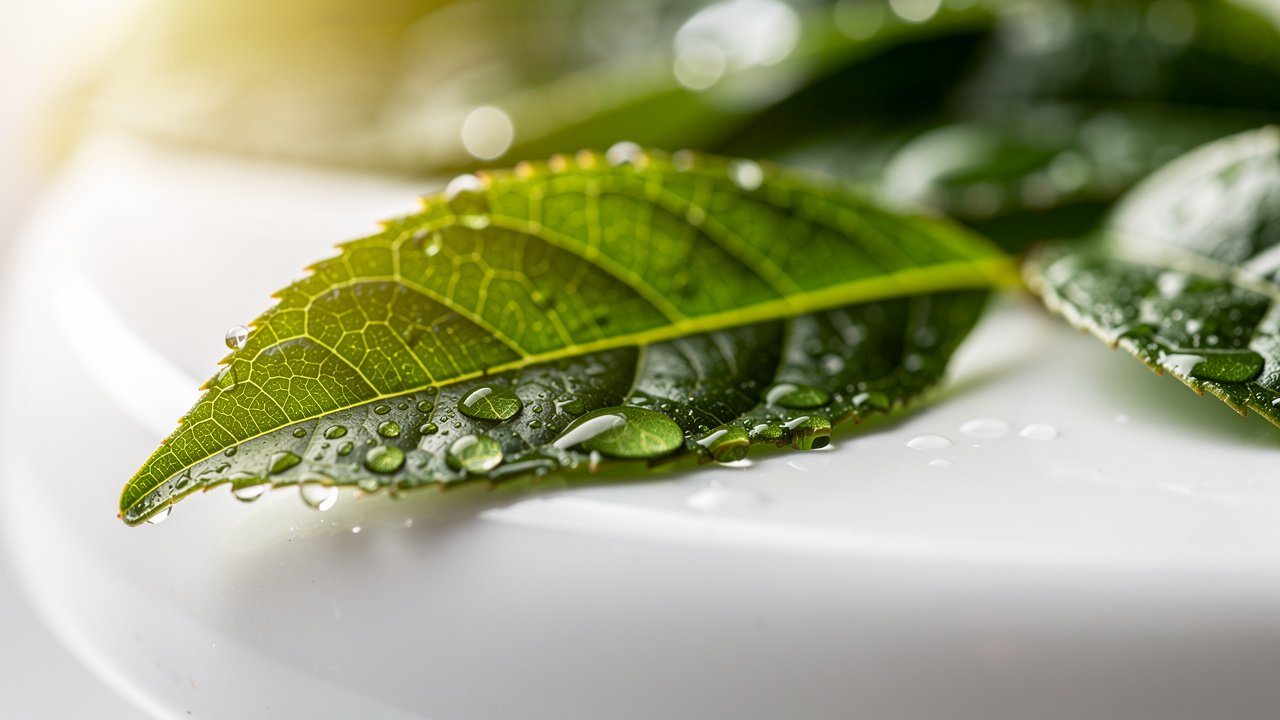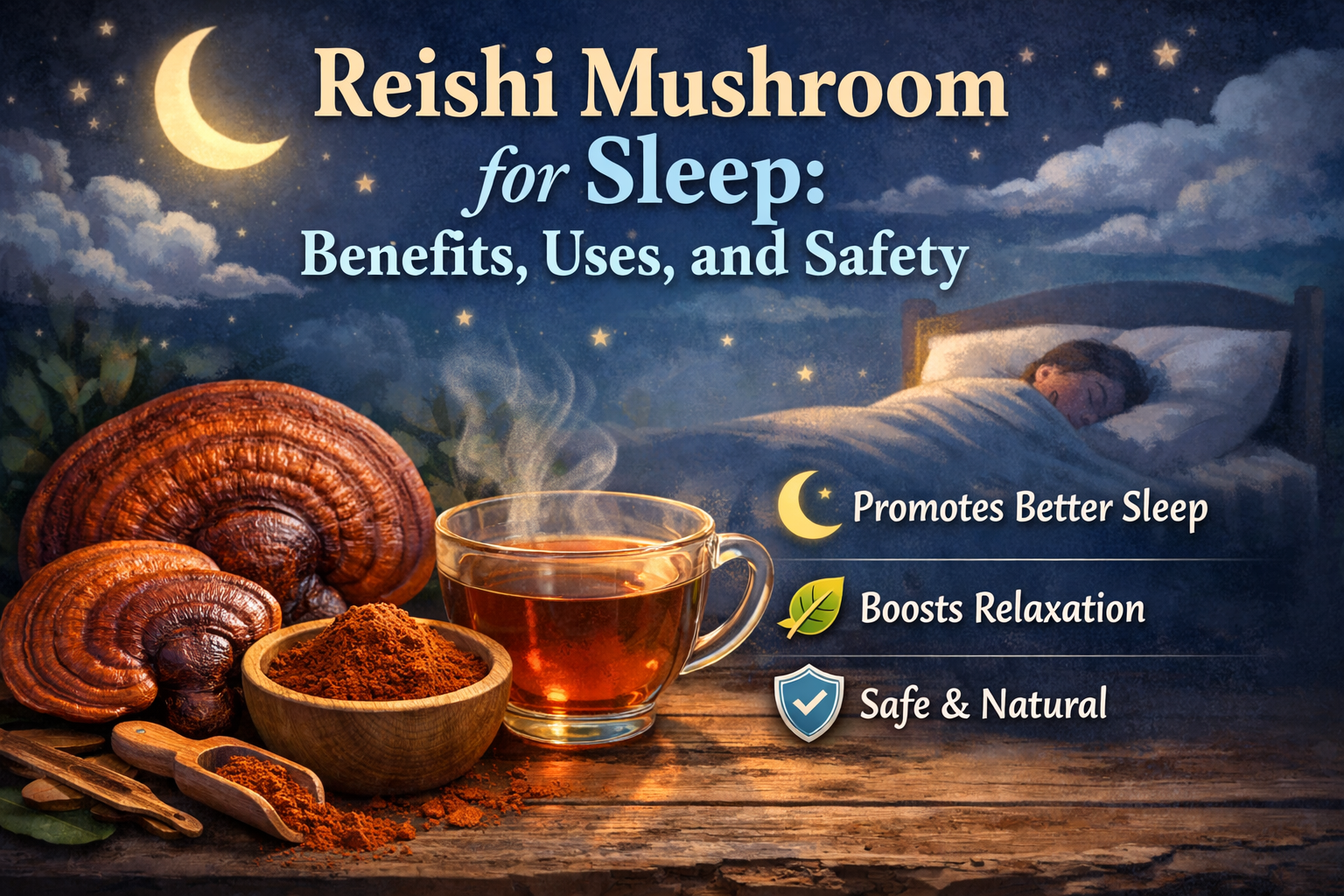A racing mind, a tight chest, a clock that seems louder with every passing minute—this is what bedtime looks like for many stressed professionals and wellness-focused adults. It’s no surprise that interest in theanine for sleep has grown so much. If that sounds familiar, you’re far from alone.
Theanine, especially L-theanine, offers a gentler path: more ease in drifting off, less tension in the body, and the possibility of deeper sleep without heavy sedation. In this guide, we’ll look at what theanine is, how it works in the brain, what the research actually shows, and how you can thoughtfully fold theanine for sleep into your own nighttime rhythm.
What Is Theanine And Where Does It Come From?

L-theanine is a water-soluble amino acid found primarily in the leaves of Camellia sinensis—the plant that gives us green, black, white, and oolong teas. It doesn’t build proteins the way most amino acids do. Instead, it influences brain chemistry in ways that can calm the nervous system.
There are two mirror-image forms of theanine (L- and D-), but L-theanine is the form found in tea and used in almost all supplements.
A few key points about its origins:
-
Tea as the main source: L-theanine makes up about 1–2% of tea’s dried weight and roughly half of its free amino acids. A cup of brewed tea typically provides 25–60 mg of L-theanine, with green tea often on the higher end.
-
Flavor and experience: Theanine contributes to the subtle savory, umami taste in green and black tea and softens the bitterness of caffeine.
-
Other sources: Small amounts have been found in a few mushrooms, but tea remains the primary dietary source.
-
Supplements: For those seeking consistent amounts of theanine for sleep, capsules, powders, and blends like deeper sleep offer clearly labeled doses instead of relying on variable tea strength.
Because theanine can support a calmer nervous system without dulling awareness, it has become a core ingredient in many rest-focused routines, including structured approaches such as Reclaim Your Sleep: The SLP1 Protocol for Moms to Win Their Sleep Back. Supplements typically use purified L-theanine, matching the form that appears naturally in tea.
How Theanine For Sleep Works In The Brain

To understand why so many people turn to theanine for sleep, it helps to look at how it shapes brain chemistry and electrical activity.
Fast Absorption And Passage Into The Brain
After you consume theanine, it’s absorbed in the small intestine and reaches the bloodstream within about 30–40 minutes. From there, it crosses the blood–brain barrier, allowing it to act directly on neurons and receptors involved in stress, arousal, and rest.
This relatively quick entry helps explain why many people feel calmer within an hour of taking theanine for sleep in the evening.
Calming An Overstimulated Nervous System
Theanine’s structure resembles glutamate, the brain’s main excitatory neurotransmitter. That resemblance allows theanine to engage with some of the same receptors—but with a different outcome:
-
Glutamate receptors: Theanine can compete with glutamate, helping prevent excessive neural firing that feels like mental overdrive.
-
GABA: It increases levels of gamma-aminobutyric acid (GABA), the brain’s primary calming neurotransmitter. Higher GABA means quieter circuits and less mental noise.
-
Serotonin and dopamine: Theanine can raise these mood-related messengers, which support emotional balance and a sense of well-being. Serotonin is also a precursor to melatonin, the hormone that signals it’s time to sleep.
-
Norepinephrine: Levels of this stress- and alertness-related chemical may decrease, softening the “wired but tired” state.
Together, these changes reduce internal tension and create a mental environment that’s more compatible with both falling asleep and deeper sleep.
Shifting Brain Waves Toward Relaxation
Electrical activity in the brain also changes with theanine:
-
Alpha waves (relaxed wakefulness): Human studies show that doses of 50–200 mg of L-theanine can increase alpha brain waves, often associated with meditation, daydreaming, and the calm state just before sleep. This “settled but awake” pattern is a hallmark benefit of theanine for sleep.
-
Delta waves (deep sleep): Animal research suggests that when theanine is paired with magnesium (in forms such as Magnesium-L-theanine), delta wave activity—the slow waves of deep, non-REM sleep—can rise more than with theanine alone.
This combination of calmer chemistry and quieter brain activity explains why many people don’t feel knocked out by theanine for sleep. Instead, they feel gently guided toward rest.
What The Research Says About Theanine For Sleep

The science on theanine for sleep is nuanced. A large review of 19 randomized controlled trials (almost 900 participants) found that L-theanine has meaningful benefits—but mostly in how people experience their sleep.
Subjective Improvements
Across studies, participants taking L-theanine reported:
-
Falling asleep more quickly
-
Better overall sleep quality
-
Less daytime fatigue and dysfunction
In other words, people felt they slept better and functioned better the next day when they used theanine for sleep.
Sleep researchers often remind people that “how rested you feel the next day is just as important as what the numbers show on a sleep tracker.”
Objective Measures: A Subtle Picture
When sleep was measured with tools like polysomnography (formal sleep studies) or actigraphy (wearable trackers), changes were less pronounced. There were no consistent, statistically strong improvements in:
-
Objective time to fall asleep
-
Total sleep duration
-
Sleep efficiency (time asleep vs. time in bed)
-
Number of nighttime awakenings
This contrast suggests that theanine for sleep may not dramatically reshape sleep architecture in healthy adults—but it can ease anxiety and restlessness enough that sleep feels more restorative.
Who Seems To Benefit Most?
Some specific groups appear to respond especially well, with research showing that high-dose L-theanine–caffeine combination improves neurobehavioural and neurophysiological measures in various populations:
-
People with high stress or anxiety: Adults with generalized anxiety often report calmer evenings and better sleep satisfaction with theanine.
-
Children with ADHD: In one trial, boys with ADHD taking L-theanine had improved sleep efficiency and less nocturnal movement.
-
People with mild insomnia or “tired and wired” nights: Those whose main barrier is mental overactivity, rather than severe clinical insomnia, tend to describe the most relief.
For many, the appeal of theanine for sleep lies in this softer shift: less tension before bed, fewer nighttime spirals, and a kinder morning.
Benefits Of Theanine For Sleep, Stress, And Next‑Day Clarity
Because theanine touches both mood and arousal systems, its benefits reach beyond the moment you close your eyes.
Key Benefits
-
Easier sleep onset: By calming racing thoughts, theanine for sleep can help you get to sleep more comfortably, especially after demanding days.
-
Perception of deeper rest: Many users describe feeling as though their sleep is “deeper” or more continuous, even if total sleep time doesn’t change dramatically.
-
Reduced stress and anxiety: The boost in GABA, serotonin, and dopamine can soften worry loops that often peak when the lights go off.
-
Less morning grogginess: Unlike stronger sedatives, theanine for sleep doesn’t blunt cognition. People typically wake feeling clearer and more present.
-
Support for structured sleep protocols: Theanine can be one piece of a broader method such as Reclaim Your Sleep: The SLP1 Protocol for Moms to Win Their Sleep Back, which pairs supplements with behavior and environment changes.
Many comprehensive sleep formulas, including deeper sleep, pair theanine with other science-backed nutrients to support both emotional calm and steady sleep cycles.
How Theanine For Sleep Compares To Traditional Sleep Aids
When sleep feels fragile, it’s tempting to reach for the fastest-acting option. Comparing theanine for sleep with common medications can clarify where it fits.
|
Approach |
How It Works |
Pros |
Considerations |
|---|---|---|---|
|
Benzodiazepines & “Z-drugs” |
Strongly amplify GABA activity |
Rapid onset, strong sedation |
Dependency risk, tolerance, next-day fog |
|
Antihistamines (OTC sleep aids) |
Block histamine to induce drowsiness |
Easy to access, short-term help |
Dry mouth, grogginess, impaired performance |
|
Melatonin |
Signals “nighttime” to the brain |
Helpful for jet lag, shift work |
Can shift body clock; not a relaxant by itself |
|
Theanine for sleep |
Calms excitatory signaling, boosts GABA |
Non-habit forming, clear-headed mornings |
Gentler, may not help severe insomnia alone |
Unlike medications that essentially press the “off” switch on the brain, theanine for sleep creates conditions where sleep can arise more naturally. That difference matters if you want to avoid dependence, maintain mental sharpness, and support long-term sleep health.
For some, a gentle aid like get to sleep—which can include theanine alongside other supportive ingredients—offers a middle ground between doing nothing and using stronger prescriptions.
Recommended Dosage Of Theanine For Better Sleep
There is no single official dose, but research and clinical experience point to a helpful range for theanine for sleep.
Common Dosing Guidelines
-
For relaxation and alpha waves:
50–200 mg, once or twice daily, often taken in the afternoon or early evening to ease stress. -
For sleep support:
200 mg about 30–60 minutes before bed is a widely used starting point in studies. -
Research range:
Trials have used 50–1,000 mg per day without serious safety concerns, but higher doses are usually reserved for clinical settings.
If you’re just starting with theanine for sleep:
-
Begin at 100–200 mg in the evening.
-
Stay at that dose for several nights.
-
Adjust gradually, in conversation with a healthcare provider, especially if you use other supplements or medications.
Many targeted sleep formulas, such as deeper sleep, stay within this evidence-informed range and combine theanine with complementary ingredients.
How To Incorporate Theanine For Sleep Into Your Nighttime Routine

Theanine works best when it’s part of a thoughtful evening pattern rather than a lone capsule taken in chaos.
1. Choose Your Form: Supplement Or Tea
Supplements
-
Capsules, tablets, or powders make it easy to take an exact dose of theanine for sleep.
-
Look for products that clearly list L-theanine content per serving.
-
Many users take their dose 30–60 minutes before they aim to get to sleep.
Tea
-
Green and black teas naturally contain L-theanine, but they also contain caffeine.
-
For sleep, choose decaffeinated green tea or decaf matcha to keep the calming influence of theanine without stimulation.
-
A warm mug can become a cue to wind down, especially when paired with slow breathing or light stretching.
2. Combine Theanine Thoughtfully With Other Nutrients
Theanine for sleep often works even better when paired with other gentle supports:
-
Glycine: This amino acid can help lower core body temperature and support deeper stages of sleep. Its use is explored in Glycine for Sleep: A Comprehensive Guide.
-
Magnesium: Supports muscle relaxation and quiets excitatory receptors. In research on Magnesium-L-theanine complexes, magnesium appeared to deepen slow-wave sleep beyond what theanine alone achieved.
-
Reishi mushroom: Long used for relaxation and resilience to stress, reishi may complement theanine’s mental calm. You can learn more in The Sleep-Supporting Powers of Reishi Mushroom.
-
Structured SLP1 protocols: Approaches like Reclaim Your Sleep: The SLP1 Protocol for Moms to Win Their Sleep Back often weave theanine with other tools—behavioral, nutritional, and environmental.
Some blended supplements, including deeper sleep, are designed to bring several of these elements together in a single routine.
3. Align With Good Sleep Habits
Even the best theanine for sleep plan can only do so much if your environment constantly tells your brain it’s daytime. To support theanine’s calming effects:
-
Dim lights and limit screens an hour before bed.
-
Keep your bedroom cool, quiet, and as dark as possible.
-
Reserve the bed for sleep and intimacy, not work or scrolling.
-
Go to bed and wake up at similar times, even on weekends.
When you combine a calmer brain with consistent signals that “night has begun,” theanine for sleep can work in a more predictable way.
Safety, Side Effects, And Interactions
L-theanine is generally well tolerated and is recognized by the U.S. Food and Drug Administration as “Generally Recognized as Safe” (GRAS) at doses up to 250 mg per serving. Still, it deserves the same respect you’d give any supplement.
Possible Side Effects
Most reported side effects of theanine for sleep are mild and short-lived:
-
Headache or mild migraine
-
Stomach upset or nausea
-
Dizziness or a sense of lightheadedness
-
Occasional drowsiness or irritability at very high doses
These symptoms usually resolve on their own and are often no more common than with placebo in studies.
Who Should Use Extra Caution?
-
Pregnant or breastfeeding individuals: There isn’t enough data to clearly establish safety. Talk with your clinician before using theanine for sleep during these times.
-
People with low blood pressure: Theanine can slightly lower blood pressure in some individuals, which might worsen existing hypotension.
-
Those with liver concerns: Problems seen with concentrated green tea extracts are rare and may be related to other compounds, but anyone with liver disease should review supplement plans with a physician.
Interactions To Keep In Mind
-
Caffeine: Tea naturally combines caffeine with theanine. During the day this pairing can smooth jitters, but near bedtime caffeine can overpower the calming effect. If you are using theanine for sleep, choose decaf options or use a pure theanine supplement.
-
Blood pressure medications: Because theanine may lower blood pressure slightly, combining it with antihypertensive drugs could theoretically drop it too far.
-
Psychiatric, seizure, asthma, and blood-thinning medications: Tea and its extracts can interact with certain drugs in these categories. Even though pure theanine is less likely to cause issues, it’s important to check with your prescriber.
If you take regular medications, reviewing your plan with a healthcare professional before adding theanine for sleep is a wise step.
Theanine For Sleep And Common Sleep Disorders
Many people exploring theanine for sleep are not simply “bad sleepers”—they’re dealing with insomnia, anxiety, or stress-related wakefulness that has become a pattern.
Theanine’s ability to:
-
Reduce cortisol and stress signaling
-
Increase calming neurotransmitters
-
And enhance alpha wave activity,
makes it particularly relevant for:
-
Difficulty falling asleep: Especially when the problem is rumination, planning, or worry once you’re in bed.
-
Anxiety-induced sleeplessness: Calmer emotional tone and reduced fight-or-flight activation can soften the edge of bedtime anxiety.
-
Mild insomnia: While theanine for sleep isn’t a replacement for cognitive behavioral therapy for insomnia (CBT‑I), it can be a gentle support alongside behavioral work.
At SLP1, resources on the science of sleep often highlight theanine as one element in a broader strategy that might also include glycine, magnesium, reishi, and changes to light exposure and daily rhythm.
Real Stories: How People Use Theanine For Sleep In Daily Life
Behind the data are people who simply want their nights back. Many find that using theanine for sleep—alongside small changes in routine—shifts their relationship with bedtime.
-
High-pressure professionals: Some describe taking theanine after their workday ends, then again before bed. Over time, evenings feel less like an extension of the workday and more like a genuine descent into rest. Several pair theanine with a product such as get to sleep when deadlines peak.
-
Mothers rebuilding their sleep: Echoing lessons from Reclaim Your Sleep: The SLP1 Protocol for Moms to Win Their Sleep Back, many moms report that theanine helps them fall back asleep more readily after nighttime awakenings, without feeling sedated when children need attention.
-
Wellness enthusiasts layering supports: Others combine theanine for sleep with glycine and reishi, drawing from guides like Glycine for Sleep: A Comprehensive Guide and The Sleep-Supporting Powers of Reishi Mushroom. They notice fewer nighttime awakenings and more refreshed mornings.
“I didn’t feel knocked out—just less on edge,” one user shared. “Adding theanine to my routine made it feel possible to wind down instead of bracing for another restless night.”
These experiences match what’s discussed on SLP1’s page on the science of sleep: theanine isn’t a magic fix, but for many, it’s a reliable part of a calmer, more intentional approach to rest.
Is Theanine For Sleep Right For You?
If your nights are shaped more by stress than by peace, theanine for sleep offers a gentle, research-informed option:
-
It calms the nervous system without heavy sedation.
-
It supports a smoother path to get to sleep and a perception of deeper sleep.
-
It pairs well with other supports like glycine, magnesium, and reishi, and with structured methods such as Reclaim Your Sleep: The SLP1 Protocol for Moms to Win Their Sleep Back.
The next step can be simple:
-
Talk with your healthcare provider about theanine for sleep, especially if you take medications or have medical conditions.
-
Start with a modest dose—often around 200 mg—30–60 minutes before bed.
-
Combine it with a consistent wind-down routine and a sleep-friendly environment.
For many, that small, steady shift is enough to change how the night feels—and how the day that follows unfolds.



Leave a comment
This site is protected by hCaptcha and the hCaptcha Privacy Policy and Terms of Service apply.